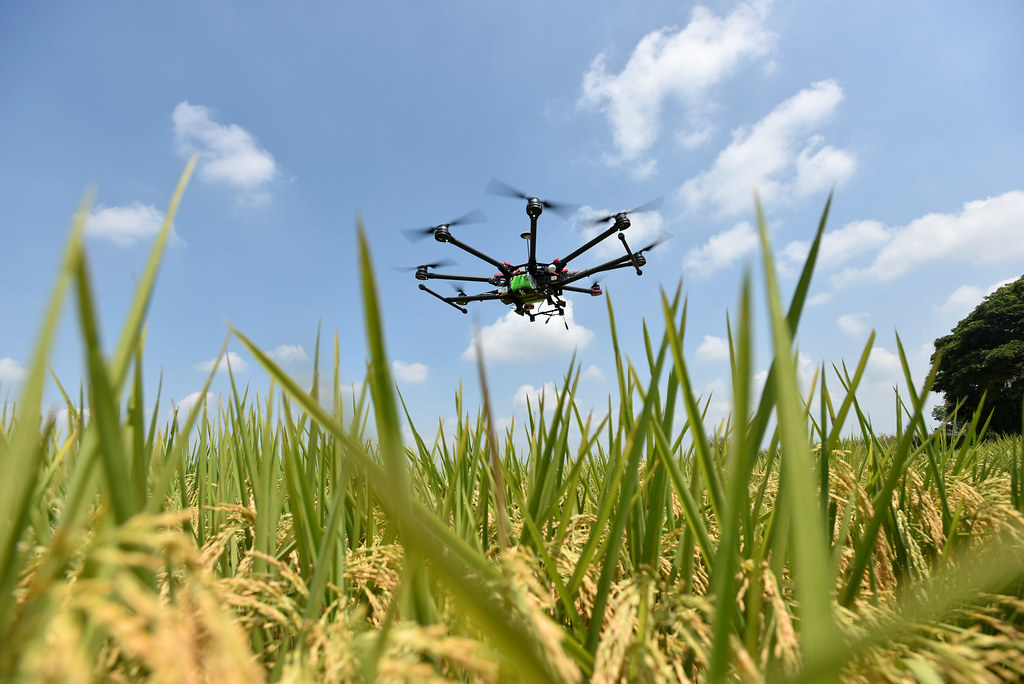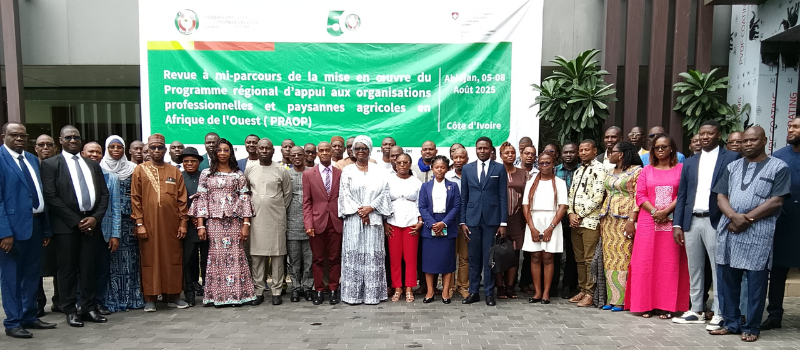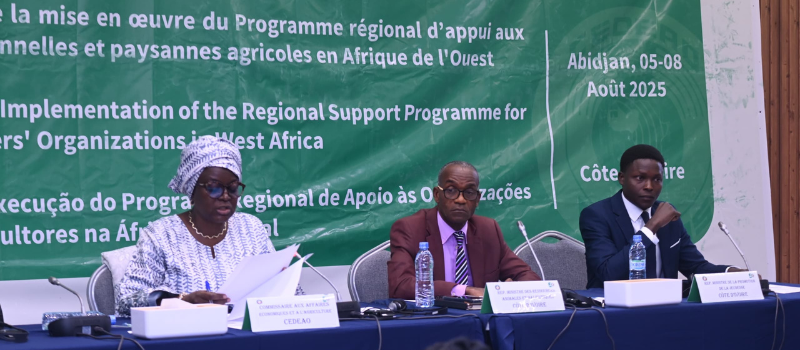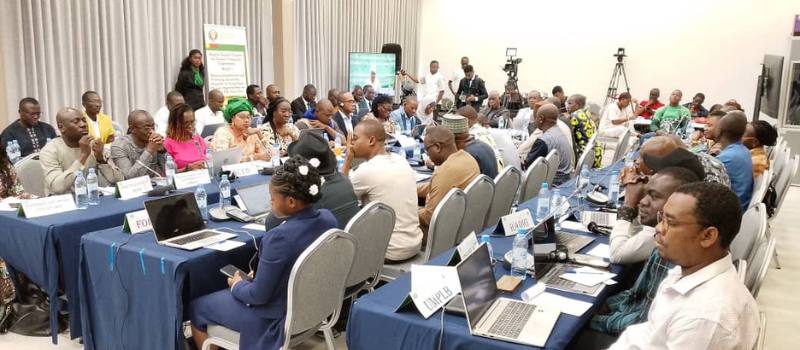-
RAAF
Contributing to the implementation of the Regional Agricultural Policy
RAAF Approach is essentially based on getting things done.
-
Thematics

Thematic areas
The implementation of the Regional Agricultural Policy (ECOWAP) is built around nine thematic areas.
-
Projects
- Renforcement des capacités pour la mise en œuvre de l’ECOWAP en Afrique de l’ouest
- At the end of PRAPS-1, which achieved significant progress in relation to most of the issues relating to animal health, sustainable management of rangelands and pastoral resources, livestock trade, and prevention and management of pastoral crises, the Wor
- Fruit flies are a major problem for the horticultural sector in West African countries. They destroy 50 to 80% of fruit production.
- The Global Climate Change Alliance Plus (GCCA+) is the second phase of an initiative of the same name launched by the European Commission in 2008
- West Africa is one of the most vulnerable regions in the world.
- Renforcement des capacités pour la mise en œuvre de l’ECOWAP en Afrique de l’ouest
- West Africa is facing three major challenges: (i) structural food and nutritional insecurity, (ii) the effects of climate change (droughts, aridity, floods, etc.), (iii) salinization and physico-chemical degradation of agricultural land.
-
News
Follow our news and events
-
Resources
Contents
More information on our work.
-
Multimedias
Interaction
Audio-visual based communication
-
Opportunities
Get Involved
- Portals
Promoting Youth Employability in the Agroforestry and Fisheries Sector in West Africa : A key Priority for ECOWAS

To contribute to the reduction of unemployment, rural exodus and uncontrolled emigration of young West Africans, ECOWAS, among other things, is working within the framework of the operationalization of its Regional Agricultural Policy to sustainably integrate them into the agroforestry and fisheries sector and agri-food value chains, particularly into that of the local milk sector. Going forward, stakeholders are conducting a mid-term review of phase 3 of the Support Programme for Agricultural Professional and Farmers' Organizations, which accompanies the process.
From 5 to 7 August 2025, stakeholders gathered in Abidjan (Côte d'Ivoire) will review progress of the implementation of the Programme after over two years of operational activities. The Programme's main areas of intervention are (i) the promotion of technical and economic models to boost youth employability in the agroforestry and fisheries value chains, and the promotion of local milk, (ii) the creation of an environment conducive to the development of local milk value chains, and (iii) the strengthening of operational and strategic management capacities of the Regional Agricultural Policy, ECOWAP.

To recall, one of Africa's greatest assets is its youth, which represen s over a third of the population (34.2%). Africa is the only region in the world where the working population is growing fast. This potential is unfortunately not fully exploited. As a matter of fact, a study by ECA and AfDB published in 2019 indicates that majority of the continent's 420 million young people aged between 15 and 35 are unemployed or work in precarious or casual jobs.
In his opening remarks, Colonel Serikpa Dadi Guillaume, Inspector General of Côte d'Ivoire Ministry of Animal and Fisheries Resources, stressed the fact that “Unemployment rate among young people averagely doubles that of adults. Between 10 and 12 million young people enter the labour market every year against only 3 million formal jobs created annually. The challenge is huge as the lack of salaried jobs drives young people into informal sectors, creates unsteady jobs, leading to illegal emigration and joining terrorist movements and groups”.

Speaking to participants, Mrs. Massandjé TOURE-LITSE, ECOWAS Commissioner for Economic Affairs and Agriculture, said: "this review should be seen as a necessary stop (i) to make a qualitative and quantitative analysis of the strengths and weaknesses of the Programme (ii) to assess progress together, (iii) identify major challenges encountered and (iv) agree on best strategies for improvement to ensure that expected results are achieved".
For record, 24 initiatives were selected following a call for project proposals and are currently being implemented in 11 countries in West Africa and the Sahel: Côte d'Ivoire, Benin, Senegal, Nigeria, Burkina Faso, Mali, Niger, Togo, Guinea, Gambia and Chad. These projects focus on pilot initiatives to integrate young people into the labour market by setting up family-type mini-dairy farms, intensive dairy farms, multi-service collection centres models, mini-processing dairies, innovation platforms, etc.
ECOWAS's ambition with this Programme is to support the development of technical and economic models designed by professional organisations with a view to integrating young people into local milk value chains and promoting the creation of 17,500 decent, well-paid jobs for young men and women in the countries where pilot initiatives are being implemented.
